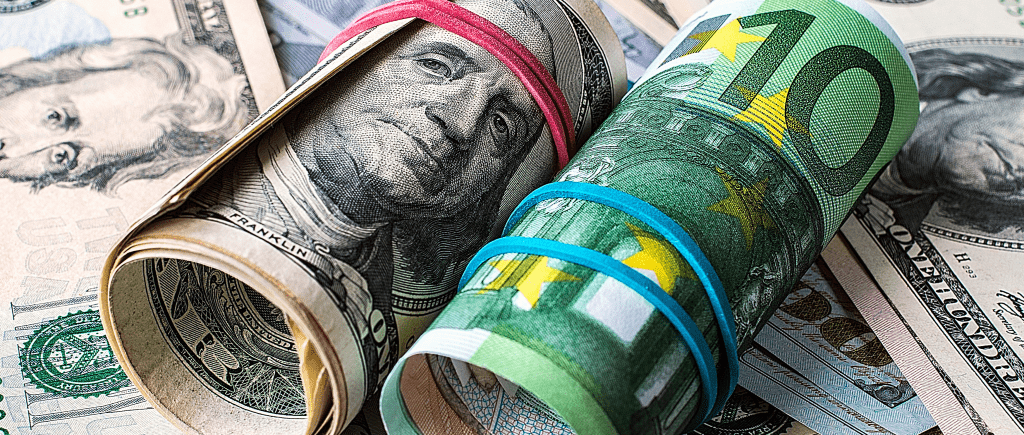Euro sinks after ECB rate hike, US data
The euro dropped more than 1% on Thursday, falling back below parity with the dollar, after the European Central Bank raised interest rates and following Thursday’s US data showing that the world’s biggest economy rebounded more than expected in the third quarter.
The ECB raised its deposit rate by 75 basis points to 1.5%, the highest since 2009, in an effort to prevent rapid price growth from becoming consolidated. Further rate hikes are almost certain, but with a weakening economy, the pace is open for severe debate.
While risks to the Eurozone’s growth outlook had shifted to the downside, Europe’s central bank has made substantial progress in removing monetary accommodation through three consecutive rate increases, ECB President Christine Lagarde said at a news conference.
Overall, Lagarde seems to have indicated a dovish tune without explicitly saying too much. The euro fell from a one-month high of $1.0094 versus the dollar earlier in the day to back below parity with the dollar after the ECB rate decision. The single currency was down 1.1% at 0.9969 at 3:20 p.m. EDT (1920 GMT).
The stronger-than-expected GDP figures in the United States followed a bundle of weaker-than-forecast economic data in recent weeks that had raised concerns about the impact of the Federal Reserve’s aggressive interest rate increases on the economy.
Despite the positive reading, however, a look under the surface could show a much grimmer picture of the US economy, one that is clearly losing momentum. With the full effect of past and future Fed rate hikes still to be felt, the economy appears poised for a modest downturn in the first half of next year.
The Fed is expected to raise its benchmark overnight interest rate by 75 basis points to 1.5%, a 13-year high, at its Nov. 1-2 policy meeting It is also likely to reel in a key subsidy to commercial banks.
Speculation that the Fed will pivot from its hawkish stance starting at its December policy meeting had caused the greenback to decline in recent days and Thursday’s bounce back was natural according to several analysts.
Profit-taking at this level has been prevalent across financial markets since Monday, the euro-dollar has gone up around 2.2%, so investors and traders have had quite a big move in the dollar over the last two days.
The British pound was down 0.58% against the greenback to $1.1559 following a two-day rally on the back of Rishi Sunak’s appointment as the United Kingdom’s prime minister and Japan’s yen rose 0.14% to 146.19 to the dollar.
Trading in the Japanese currency has been volatile after suspected interventions by the government to boost the ailing currency on Friday and Monday. On Wednesday, the Bank of Canada announced a smaller-than-expected interest rate hike of 50 basis points. The move has made investors even more alert to signs that the Fed and ECB might be slowing their tightening down. The Canadian dollar last traded 0.03% lower at 1.3557 per US dollar.

 Noor Trends News, Technical Analysis, Educational Tools and Recommendations
Noor Trends News, Technical Analysis, Educational Tools and Recommendations




